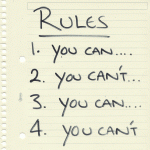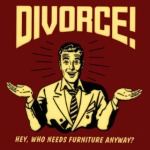 [tweetmeme]
[tweetmeme]
If you’ve never been to the annual Business Innovation Factory conference (#BIF6 on twitter), it’s really quite a trip. More of a mini-TED conference than anything specifically innovation related – it’s all about enabling people to share stories about things they’ve achieved, thought of, experienced, and so on. The end result is that you don’t necessarily walk away with a series of bullet point “To-Do”’s like you might at other conferences – but you do end up with a simmering pot of interesting thoughts and ideas just waiting to boil over the top.
This year, two speakers said things that stuck in my head and kept me thinking. Such is the way my mind works that unfortunately I can no longer remember who they were – but I’m sure someone will eventually remind me in the comments below this post 🙂
 The first of these insights was an observation that, if you have two equally matched sports teams, and one team’s members actively want to win, whilst the other team isn’t bothered – then chances are, the team that wants to win, will do so. Sounds obvious really, but it brings an interesting question to mind when you bring that concept into the business world – which, at the heart of it, has similar competitive dynamics.
The first of these insights was an observation that, if you have two equally matched sports teams, and one team’s members actively want to win, whilst the other team isn’t bothered – then chances are, the team that wants to win, will do so. Sounds obvious really, but it brings an interesting question to mind when you bring that concept into the business world – which, at the heart of it, has similar competitive dynamics.
If you have two equally matched companies competing against each other, the company that collectively wants to win more – will probably do so. “Desire to Win” is a competitive differentiator in effect.

With that in mind, however – how many of us actively try to instill that desire to win into our employees? How many companies actively engage in “Win Management”? You could even say that what really differentiates a successful innovator/entrepreneur from normal people is that never-ending drive to win “the game” of business.
This is even more amplified in the Innovation world where the risk of failure is ever present and embraced as a part of everyday life. It is a daily competition to beat the odds and win the game of innovation.
Pair that thought up now with another insight from that same conference. Apparently, at any one point in most organizations, only 20% of the staff are actively engaged and enjoying the job they’re doing. I would personally argue that that number seems a little high to me – and is probably rotating too – that is, we’re not necessarily talking about the same 20% year round, as people naturally go through cycles of loving/hating/being indifferent to their work.
I would also argue that one of the reasons why people don’t get engaged in their jobs, is because their jobs (ie their companies) don’t engage them. They feel like they have no say, no ability to make an impact, no reason to want to win….
So it stands to reason that if a company really wants to win at Innovation they need to both instill a competitive desire to win in their organizations, and to tap into and maintain that desire by actively engaging their population in strategic innovation decisions.
 And by “Engagement” I don’t mean just listening to your employees – I mean actually “Doing” something with their input. Business, and especially Innovation – is a team sport – and no one wants to be relegated to being the guy on the subs bench that never gets on the field.
And by “Engagement” I don’t mean just listening to your employees – I mean actually “Doing” something with their input. Business, and especially Innovation – is a team sport – and no one wants to be relegated to being the guy on the subs bench that never gets on the field.
So now you know what you have to do, you have to ask yourself – Do you want to win at Innovation? Well, do you?…









